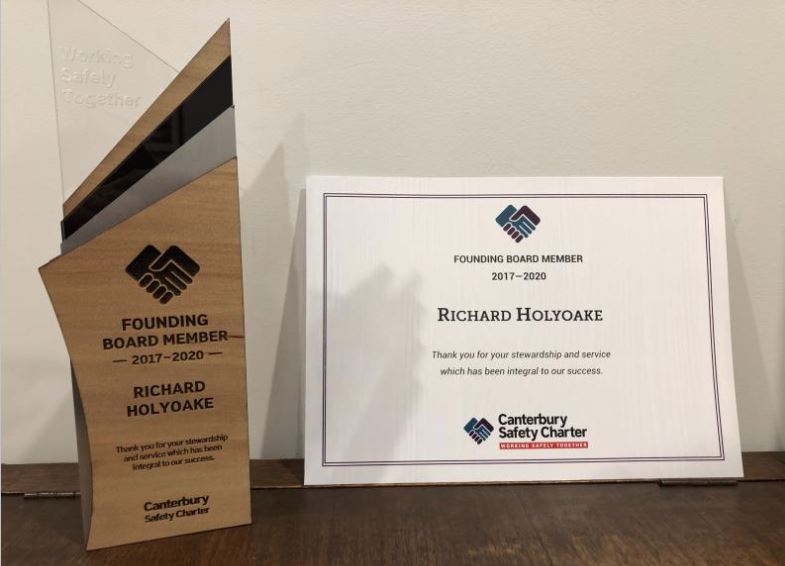I have recently stepped off the Canterbury Safety Charter board as I try and rationalise my various commitments, having been on the Board since its inception as an Incorporated Society in 2017. It has been a pleasure to work with the board and management over that time, under the chairmanship of Rob Sloan as we came to grips with "who we are" and "what we do" as a charter. We have changed the name, changed the branding, appointed a General Manager, worked with Worksafe, and liaised with the Leaders forum and the recently established CHASNZ.
The Charter have lent our assistance to other regions as they look to replicate the benefits we have seen in Canterbury. Most of all though we have continued to run workshops and events, champion initiatives such as Safety in Design, and worked to keep the conversation going. My personal view is that the latter is the most important thing we do – keep the Health and Safety conversations going.
The last few months have been very challenging for most of us as COVID-19 spread around the world and governments, organisations, and individuals had to react. As a consulting engineer, I was able to work from home during the lockdown, albeit there were quite a few challenges, not the least of which was the feeling of being attached to a computer every daylight hour and some dark hours too. That was not my biggest challenge though.
In the depths of lockdown, and as the result of a regular medical check (I have been having annual medicals by choice for several years now) I was diagnosed with bowel cancer, and 4 days later was operated on in a very empty hospital (thanks to COVID). I’d had no obvious symptoms apart from being tired which I put down to aging and a busy professional and personal life. The operation was successful and I have now physically recovered, and in fact I feel fitter and healthier than I have for some time. No further treatment is recommended.
I have talked about the experience with many of my friends, colleagues and clients, and in particular of the realisation that a regular medical check-up resulted in timely medical intervention. The result could have been very different – in my case it would appear that the tumour was removed before it managed to wreak havoc with other organs and cause a very different outcome. Initially it felt weird talking about it, it was a "private" issue and could be regarded as no-one else's business. On the other hand,it felt quite good and almost therapeutic to talk about it – in a way it helped me process what had happened. There is also the possibility that someone else might benefit from the story.
I won't quote the instant verbal reaction of most people when I tell the story, except to say that most are surprised, shocked or disbelieving that this could happen to someone who is apparently fit, active and healthy. I have also been surprised at how many people have opened up about their family history of cancer, their own close call, or of their (very) new-found intention of going to get a routine medical.
I have been shocked at how hidden bowel cancer is. Clearly there are awareness campaigns through social and mainstream media, but I suspect many take the stance that "it can't (or won't) happen to me". It might happen to you or someone close. I consider myself lucky to be able to reflect on this as a good outcome, it could have been so very different had I not had a routine medical.
Reflecting on my experience, there are a couple of messages that I think are clear;
- The first is that you may benefit from regular check-ups – maybe think about your body as a machine that needs maintenance and check-ups like any other machine.
- The second message is that we need to keep the conversations going – just as the Charter is doing with health and safety, we need to share stories and learn from each other's experiences.
- Take care and keep the health and safety conversations going.
Richard Holyoake
|


















